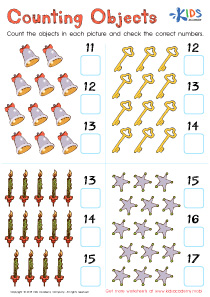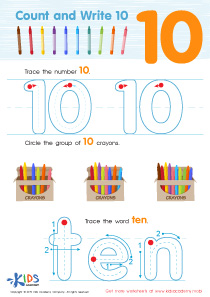Counting skills Normal Numbers up to 100 Worksheets for Ages 3-9
10 filtered results
-
From - To
Looking to enhance your child's counting skills? Our Counting Skills Normal Numbers up to 100 Worksheets are perfect for children aged 3-9. These engaging, educational worksheets help young learners master counting from 1 to 100. Featuring colorful illustrations and fun activities, they make learning enjoyable and effective. Perfect for hands-on practice at home or in the classroom, these worksheets are designed to reinforce counting proficiency, numerical order, and pattern recognition. Boost your child’s confidence in math with our expertly crafted resources. Discover the joy of learning and watch your child’s counting abilities soar, setting a strong foundation for future math success.
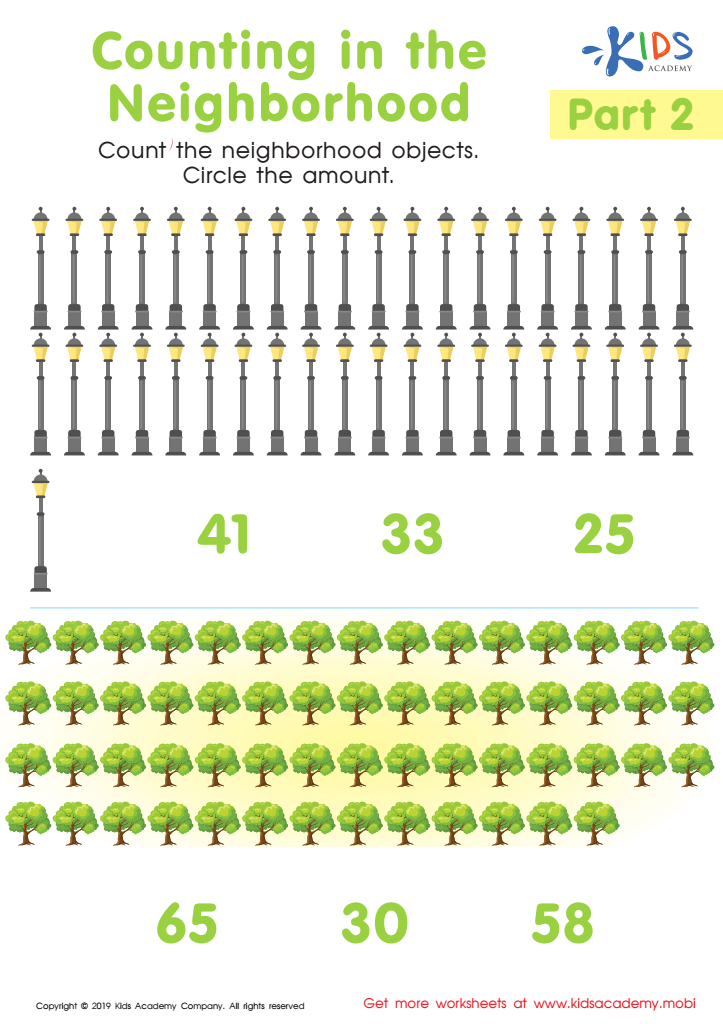

Counting In The Neighborhood Part 2 Worksheet
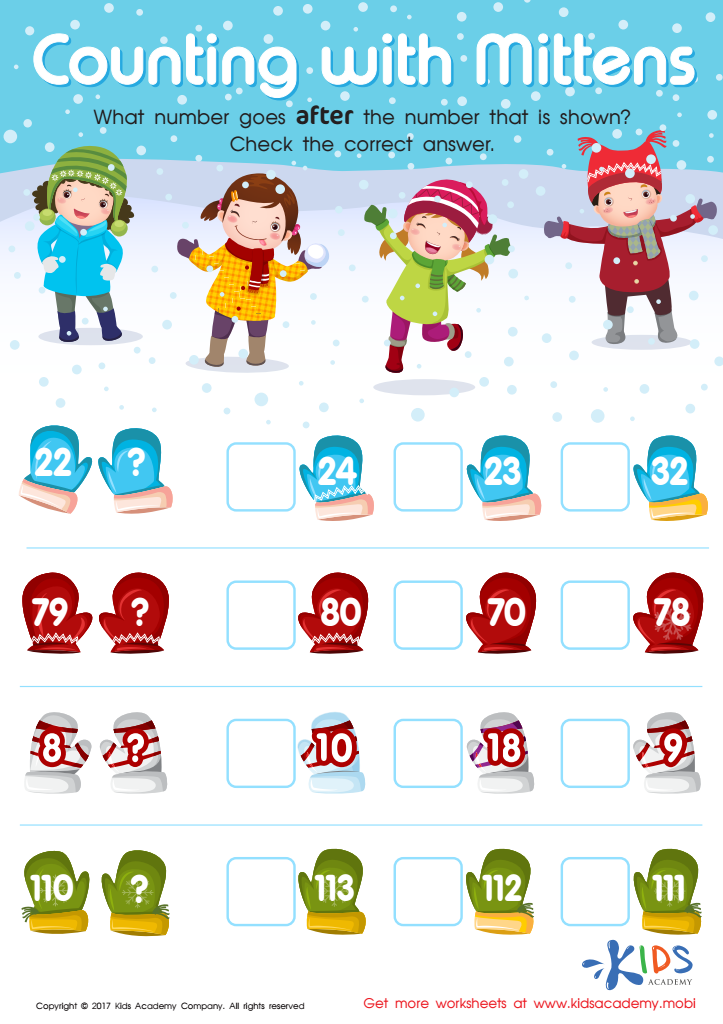

Counting with Mittens Worksheet
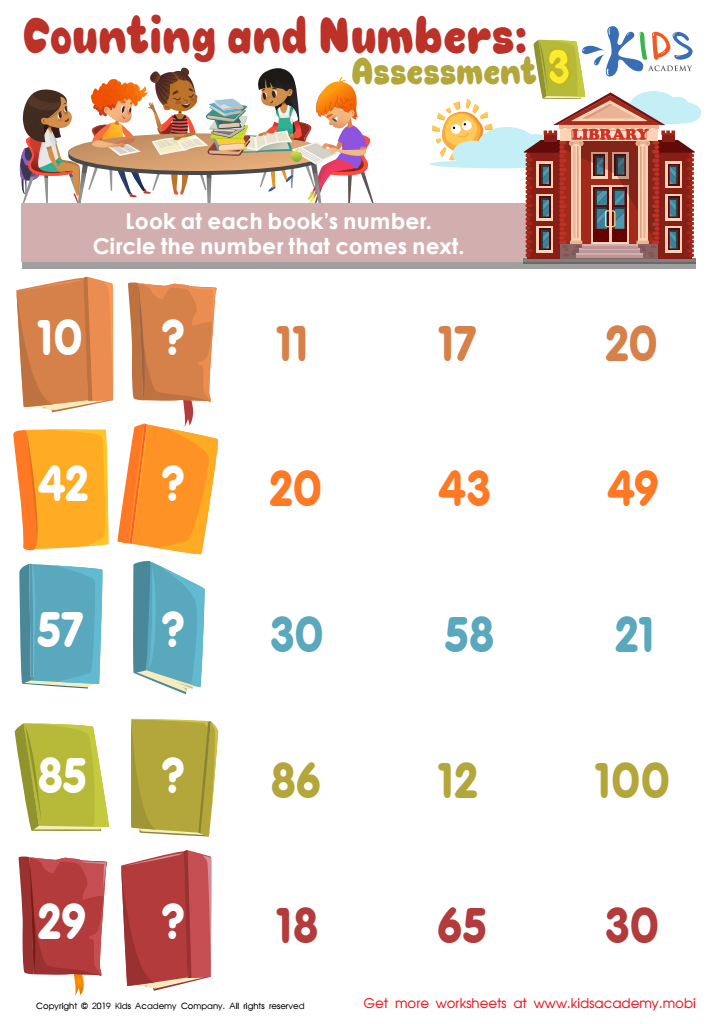

Counting and Numbers: Assessment Worksheet
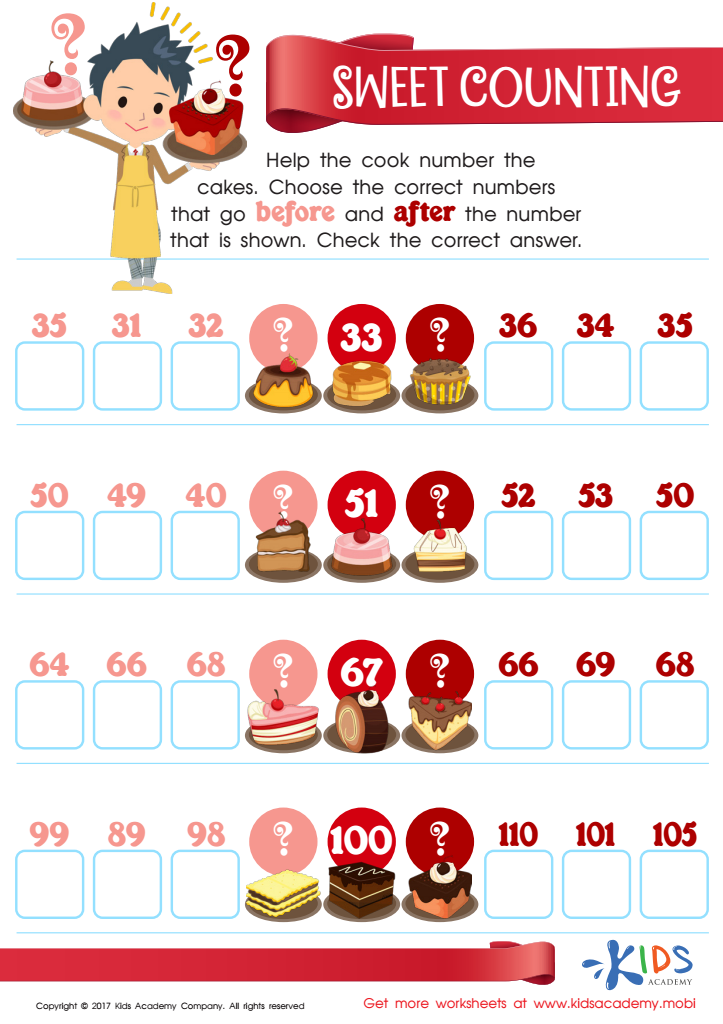

Sweet Counting - Part 1 Worksheet
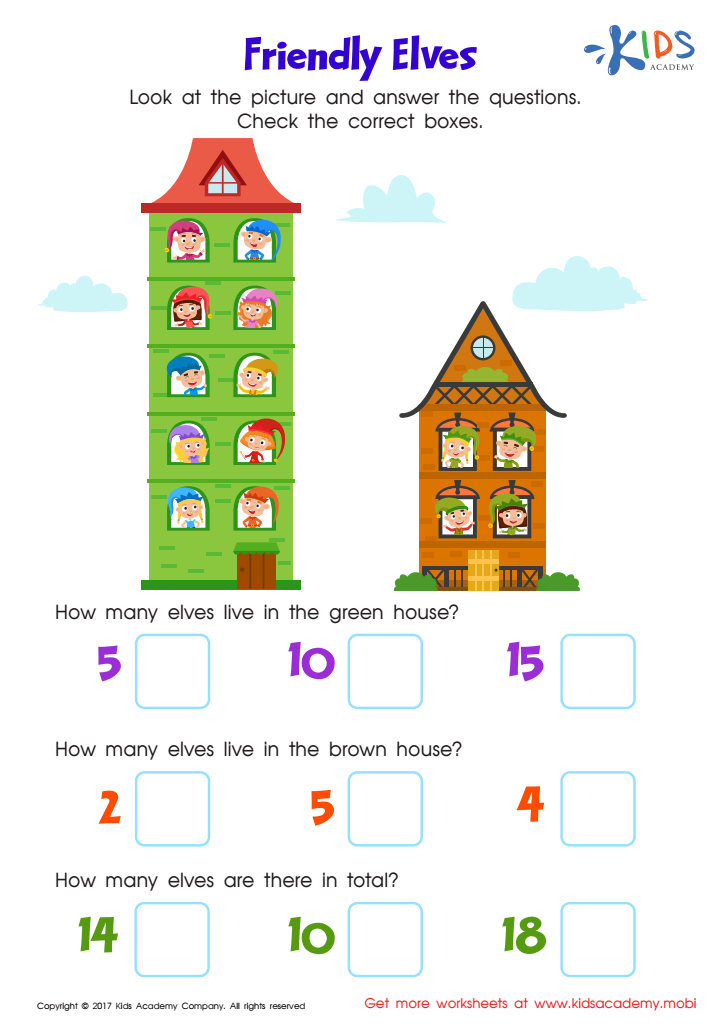

Place Value: Friendly Elves Worksheet
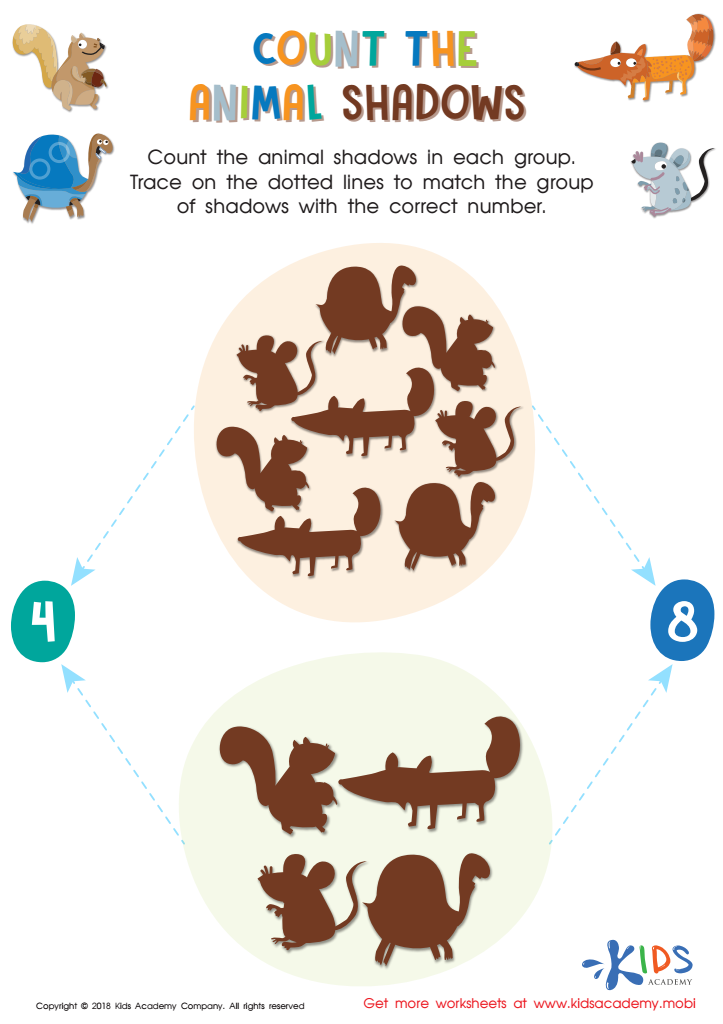

Count the Animal Shadows Worksheet
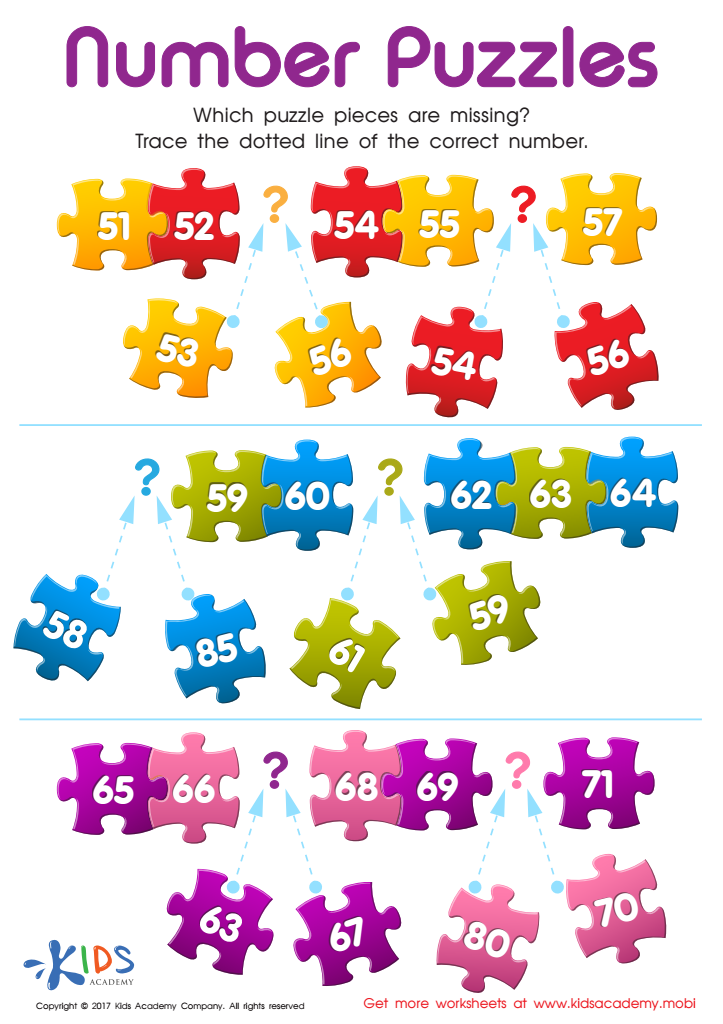

Number Puzzles Worksheet
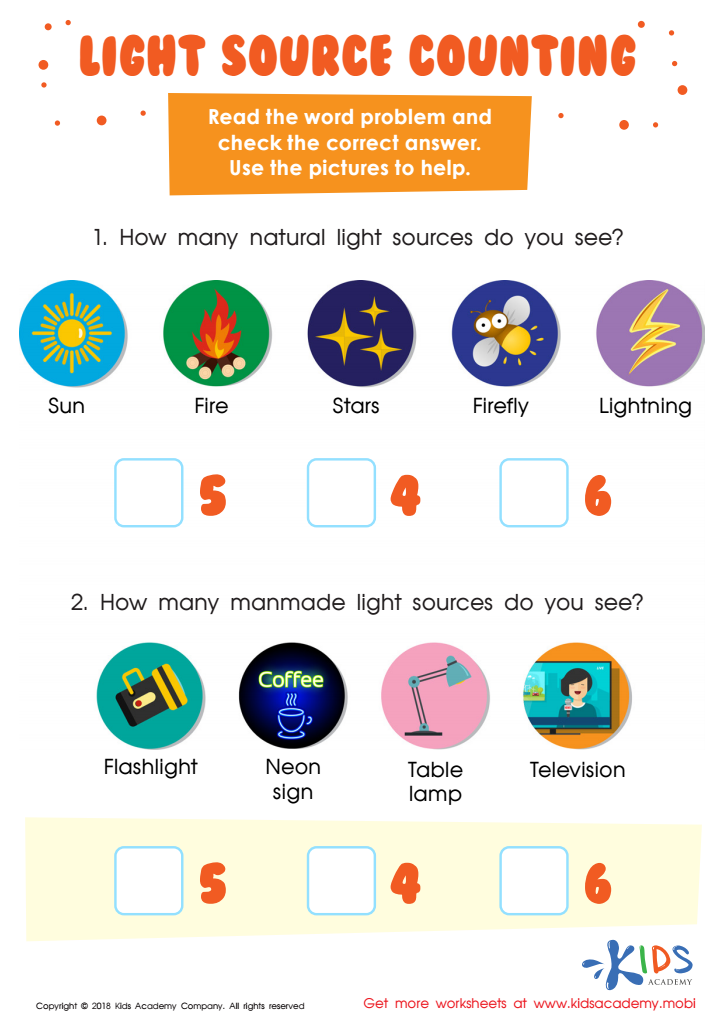

Light Source Counting Worksheet
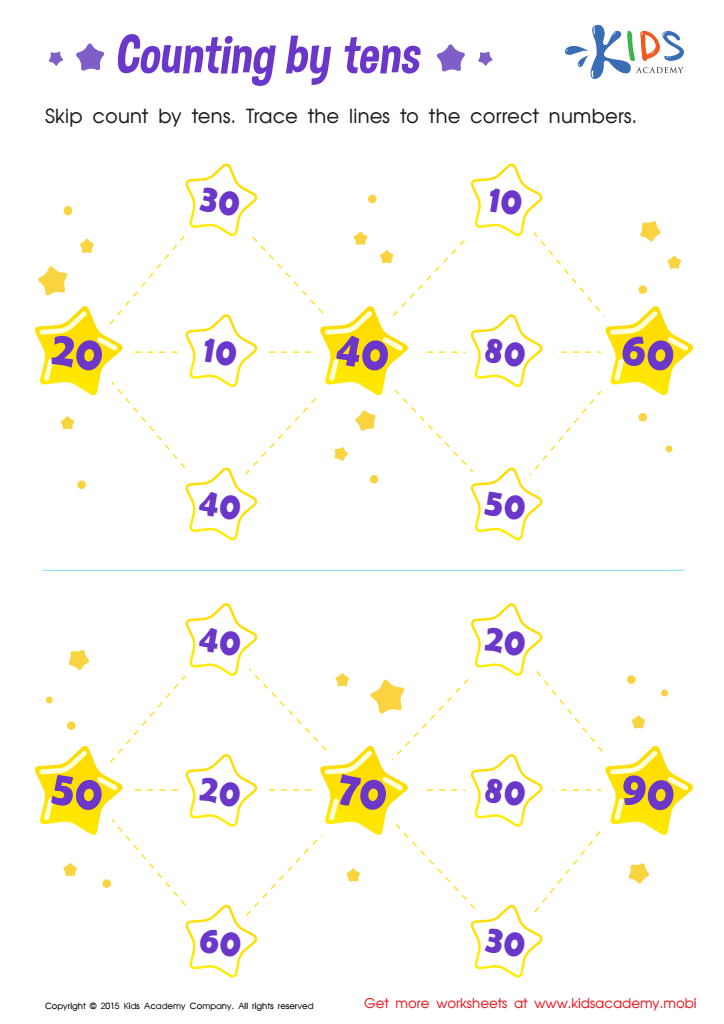

Learn Dozens: Counting by Tens Printable
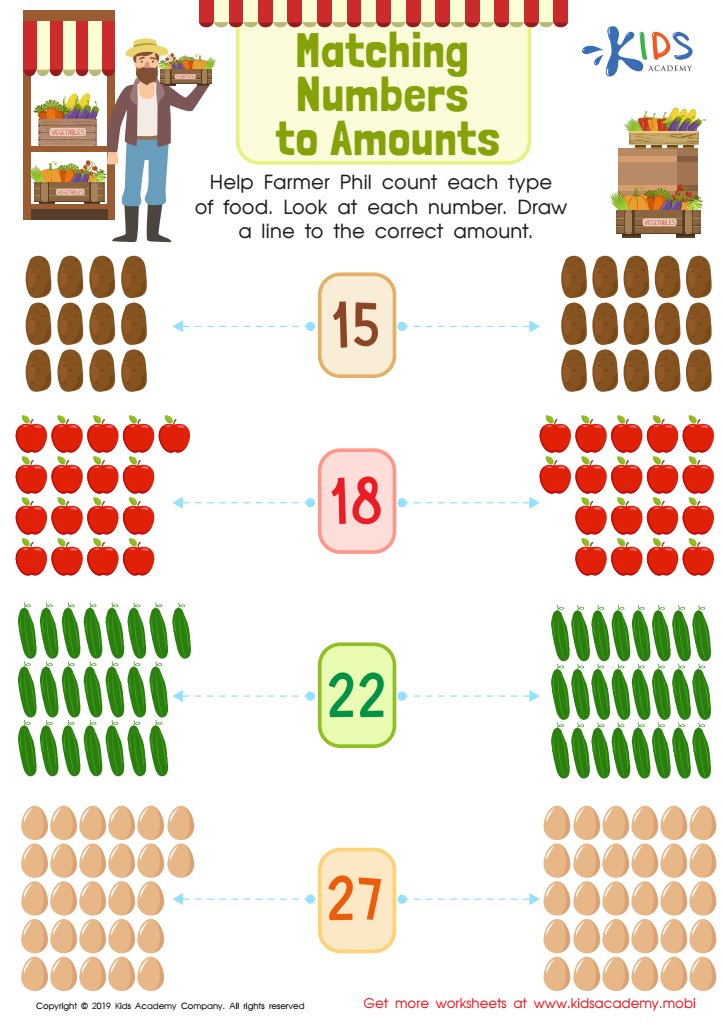

Matching Numbers to Amounts Worksheet
Counting skills, especially within the range of normal numbers up to 100, serve as a foundational element for early childhood development, crucial for children aged 3-9. These early numerical skills form the bedrock for more complex mathematical concepts like addition, subtraction, and eventually, multiplication and division.
When children master counting up to 100, they gain a crucial understanding of number sequences and the relationships between numbers. This early proficiency promotes confidence and reduces future anxiety associated with mathematics. Such skills also enhance their problem-solving capabilities and logical thinking, extending benefits beyond mathematics into everyday practical situations such as measuring ingredients, estimating time, and handling money.
Moreover, developing counting competency fosters cognitive skills including pattern recognition, memory enhancement, and fine motor coordination when physically counting objects. These abilities are integral in supporting their overall academic achievement. By facilitating a child's counting ability, parents and teachers lay a critical groundwork that intertwines with literacy and shapes future educational pursuits.
Additionally, early counting activities encourage a child's engagement and interest through fun and interactive learning processes. This not only nurtures a joy for math but builds an early resilience toward tackling challenges, an attitude that is instrumental for lifelong learning.
 Assign to My Students
Assign to My Students










